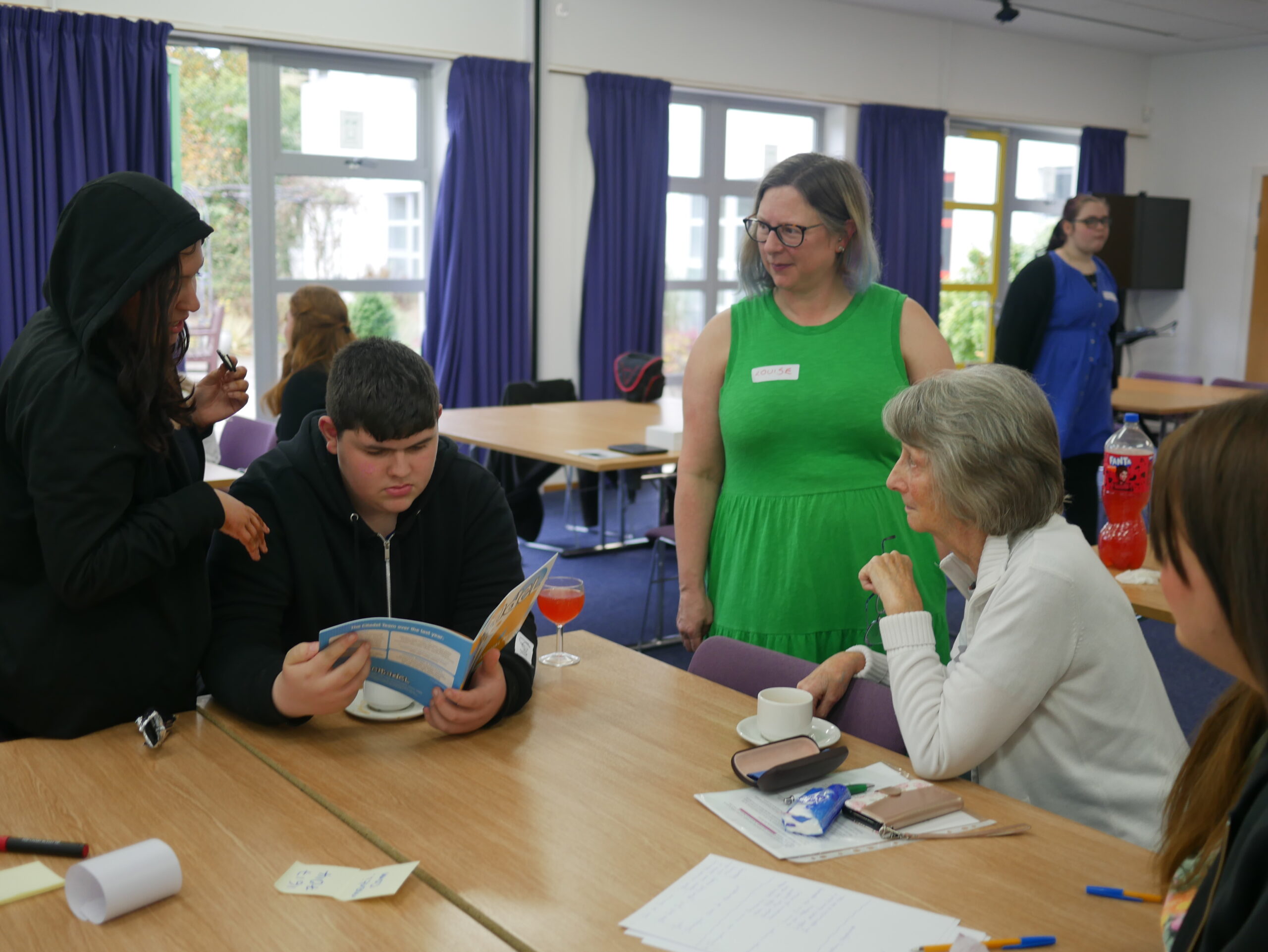In this blog, Ryan McKay, Youth Spark Development Worker, and Louise McCabe, Professor of Dementia Studies, reflect on an exciting intergenerational workshop held as part of the Economic and Social Research Council (ESRC) Festival of Social Science 2024.
On Saturday 2nd November 2024, a group of older volunteer co-researchers from the HAGIS research project joined young people from Youth Spark our Young Start (National Lottery Funded) youth-led participation project for a dynamic intergenerational workshop, hosted as part of the ESRC Festival of Social Science. The focus? Swapping ideas about how digital technology supports wellbeing and resilience across generations.
The idea for the workshop emerged from the older co-researchers work on the HAGIS COVID Impact and Recovery study. This participatory research project involved seven volunteer co-researchers, who helped shape the study by ensuring the questions resonated with participants’ lived experiences. Between October 2021 and April 2022, the co-research team interviewed 36 people from diverse backgrounds across Scotland. Participants, aged 50 to early 80s, shared how the pandemic affected their health, relationships, finances, and use of technology. Key findings included:
- Fear and Isolation: Many expressed fear around contracting COVID-19 and its impact on family and community. Shielding individuals, in particular, faced heightened stress and loneliness.
- Community Strength: Despite challenges, the pandemic strengthened local community ties, with neighbours supporting each other and a renewed appreciation for local resources.
- Digital Technology: Technology played a crucial role in maintaining connections, with older people adapting to tools like video calls and online shopping. However, some struggled with digital healthcare access.
- Resilience and Opportunity: The pandemic inspired many to take up new hobbies, focus on fitness, and connect with nature. These activities boosted physical and mental wellbeing, with many participants expressing a desire to retain these positive changes.
The research highlighted the role of resilience and the different ways in which people respond to and bounce back from challenges faced, which provided the inspiration for this workshop. The importance of family and intergenerational relationships underpinned our decision to invite young people to work with us to run an intergenerational event.
The morning began with a music-themed icebreaker that challenged age-based stereotypes. Debating the best decade for music and the merits of cover songs versus originals, the activity quickly broke down barriers. “I was surprised how much we had in common,” shared Stuart, a Citadel volunteer. “Neither generation stuck to their own era of music—turns out everyone loves the Pet Shop Boys!”
To prepare for the workshop, the young people practiced a 6 Dice Questions activity during the train journey from Edinburgh. This activity, focusing on resilience—what it means, how it’s developed, and how it differs across generations—helped them reflect and build confidence. During the workshop, the same activity was run with both generations, sparking meaningful conversations and shared insights. One young person shared, “Having those conversations earlier made it much easier to share my thoughts when we did it with everyone.”
The highlight of the workshop was the digital ideas swap shop, where participants shared tools and technologies that support their wellbeing. Young people enthusiastically introduced video games as a major source of stress relief and connection, while older participants shared their experiences with video calls to stay in touch with family or exploring creative hobbies like digital photography. One participant reflected, “It was inspiring to see how technology supports people in such unique and personal ways.”
This workshop beautifully demonstrated the power of intergenerational connection. By reflecting on our shared experiences and celebrating our differences, we can build a more resilient, inclusive future—together.

